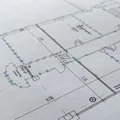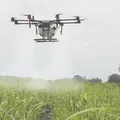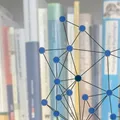Dr. Arne Bewersdorff

Academic Researcher
Office Hours: by Appointment
Email: Arne Bewersdorff
Phone: +49 (89) 289 - 25385
Room: 252
Projects

Coordination TUM-DigiLLab
The TUM-DigiLLab (Digital Teaching and Learning Lab of the Technical University of Munich) is a newly established infrastructure to promote digital skills in secondary and vocational teacher training. Link

EPIC-AI: Feedback tool using artificial intelligence
The aim of this research project is to develop an AI system (EPIC AI, Experiment Protocol Inspection and Correction AI) for identifying student errors in experimental protocols. Based on the identified errors, adaptive feedback is generated by the AI system. Link to first publication

Junior Fellowship Artificial Intelligence
The goal of this project is to develop and evaluate a course to foster a basic understanding of artificial intelligence (AI Literacy) among pre-service science teachers. Founded by the Joachim Herz Foundation. Link

Knowledge Hub
The objective of the project is to provide digital Open Educational Resources (OER) on four emerging technologies: Artificial Intelligence (AI), Augmented Reality (AR), Mobile Devices, and 3D Printing. Founded by 'Strengthening Learing and Teaching as part of the TUM Excellence Strategy'. Link
Lectures
- Potential-oriented teaching: AI technologies in the classroom (since Winter semester 2024/25
- Artificial Intelligence in Education (Summer semester 2024)
- Innovations in Science Education: Introduction to Artificial Intelligence (Summer semesters 2022 & 2023)
- Basics of Science Education (with Prof. Nerdel, since summer semester 2022)
Curriculum Vitae
Since 2021: Academic Researcher at TUM School of Social Sciences and Technology, Munich
- Coordinator of TUM-DigiLLab
2017 - 2021: Academic Researcher at the University of Education, Heidelberg
- PhD student with Prof. Dr. Armin Baur and Prof. Dr. Markus Emden
- Day of Disputation: 10. May 2022
2014 - 2017: University of Education Schwäbisch Gmünd
- Pre-service teacher Physics, Mathematics, Computer Science (1. Staatsexamen)
2011 - 2014: University of Ulm
- Computer Science & Electric Engineering
Publications
Bewersdorff, A., Nerdel, C., Zhai, X. (2025, submitted). How AI literacy correlates with affective, behavioral, cognitive and contextual variables: A systematic review. Preprint https://doi.org/10.13140/RG.2.2.34288.78088
Seßler, K., Bewersdorff, A., Nerdel, C., & Kasneci, E. (2025). Towards adaptive feedback with AI: Comparing the feedback quality of LLMs and teachers on experimentation protocols. arXiv. https://doi.org/10.48550/arXiv.2502.12842
Emden, M., Bewersdorff, A., Baur, A. (2025). Assessing Professional Development on Experimentation as a Method of Inquiry‐Based Science Teaching Framework and Principal Results. Science Education. doi.org/10.1002/sce.21943
Bewersdorff, A., Hornberger, M., Nerdel, C., & Schiff, D. S. (2025). AI advocates and cautious critics: How AI attitudes, AI interest, use of AI, and AI literacy build university students' AI self-efficacy. Computers and Education: Artificial Intelligence, 8, 100340. https://doi.org/10.1016/j.caeai.2024.100340
Hornberger, M., Bewersdorff, A., Schiff, D., & Nerdel, C. (2025). A Multinational Assessment of AI Literacy among University Students in Germany, the UK, and the US. Computers in Human Behavior: Artificial Humans, 100132. https://doi.org/10.1016/j.chbah.2025.100132
Latif, E., Zhou, Y., Guo, S., Gao, Y., Shi, L., Nayaaba, M., Lee, G., Zhang, L., Bewersdorff, A., Fang, L., Yang, X., Zhao, H., Jiang, H., Lu, H., Li, J., Yu, J., You, W., Liu, Z., Liu, V. S., ... Zhai, X. (2024). A systematic assessment of OpenAI o1-Preview for higher-order thinking in education. arXiv. https://doi.org/10.48550/arXiv.2410.21287
Bewersdorff, A., Nerdel, C. (2024). KI in gymnasialer und beruflicher Lehrkräftebildung an der TUM: Interdisziplinäres und fachdidaktische Umsetzungsbeispiel, In: J. Huwer, S. Becker-Genschow, C. Thyssen, Lars-Jochen Thoms, L. v. Kotzebue, A. Finger, E. Kremser, M. Meier, & T. Bruckermann (Eds.), Kompetenzen für den Unterricht mit und über Künstliche Intelligenz. Perspektiven, Orientierungshilfen und Praxisbeispiele für die Lehramtsausbildung in den Naturwissenschaften. Waxmann. (Link zum Volltext)
Bewersdorff, A., Hartmann, C., Hornberger, M., Seßler, K., Bannert, M., Kasneci, E., ... & Nerdel, C. (2024). Taking the next step with generative artificial intelligence: The transformative role of multimodal large language models in science education. Learning and Individual Differences, 118, 102601. https://doi.org/10.1016/j.lindif.2024.102601
Lee, G., Shi, L., Latif, E., Gao, Y., Bewersdorff, A., Nyaaba, M., Guo, S., Wu, Z., Liu, Z., Wang, H., Mai, G., Liu, T., & Zhai, X. (2023). Multimodality of AI for Education: Towards Artificial General Intelligence. ArXiv. https://doi.org/10.48550/arXiv.2312.06037
Bewersdorff A., Seßler K., Baur A., Kasneci E. & Nerdel C. (2023). Assessing student errors in experimentation using artificial intelligence and large language models: A comparative study with human raters, Computers and Education: Artificial Intelligence. https://doi.org/10.1016/ j.caeai.2023.100177.
Hornberger, M., Bewersdorff, A. & Nerdel, C. (2023). What do university students know about Artificial Intelligence? Development and validation of an AI literacy test, Computers and Education: Artificial Intelligence. https://doi.org/10.1016/j.caeai.2023.100165
Bewersdorff, A., Zhai, X., Roberts, J. & Nerdel, C., (2023). Myths, pre- and misconceptions of artificial intelligence: A review of the literature, Computers and Education: Artificial Intelligence. https://doi.org/10.1016/j.caeai.2023.100143
Bewersdorff, A. Nerdel, C. (2023). Lehrprojekt ‚Einführung in die Künstliche Intelligenz‘ im Rahmen des Seminars ‚Technologie in der Fachdidaktik: Biologie‘. In: H. van Vorst (Hrsg.), Lernen, Lehren und Forschen in einer digital geprägten Welt. Gesellschaft für Didaktik der Chemie und Physik, Jahrestagung in Aachen 2022, S. 576-579. (Link zum Volltext)
Bewersdorff, A., Nerdel, C. (2023). Das TUM-DigiLLab: Lehr-Lernraum sowie Forschungs- und Entwicklungsumgebung zur Förderung digitaler Kompetenzen. In: Meier, M., Greefrath, G., Hammann, M., Wodzinski, R., Ziepprecht, K. (Hrsg.) Lehr-Lern-Labore und Digitalisierung. Springer, Wiesbaden. https://doi.org/10.1007/978-3-658-40109-2_10
Wittmann, E., Rechl, F., Miesera, S., Siegert, J., Heinze, L., Pohley, M., Striković, A., Gadinger, L., Bewersdorff, A., Förster, M., Nerdel, C. (2022): „Digitale Transformation“ als Gegenstand der beruflichen Lehrkräftebildung – zur Entwicklung eines Lehr-Lern-Labors unter mündigkeitsbezogener Perspektive. In: bwp@ Berufs- und Wirtschaftspädagogik – online, 43, S. 1-23. (Link zum Volltext)
Heinze, L., Bewersdorff, A.,Nerdel, C., Wittmann, E., Miesera, S. (2022): Digitale Lehr-Lernlabore: Authentische Handlungssituationen zur Vermittlung digitaler Kompetenzen in Lehr-Lernformaten der beruflichen Lehrkräftebildung. In: bwp@ Berufs- und Wirtschaftspädagogik – online, 43, S. 1-24. (Link zum Volltext)
Weiler, D., Bewersdorff, A. (2022). Superposition of Oscillation on the Metapendulum: Visualization of Energy Conservation with the Smartphone. In: Kuhn, J., Vogt, P. (Hrsg.) Smartphones as Mobile Minilabs in Physics. Springer, Cham. (Link zum Buchbeitrag)
Bewersdorff, A. (2022). Untersuchung der Effektivität zweier Fortbildungsformate zum Experimentieren mit dem Fokus auf das Unterrichtshandeln. Berlin: Logos. (Link zum Volltext)
Bewersdorff, A., Weiler D., (2022). Measuring the speed of light in liquids with a smartphone.The Physics Teacher, 60, S. 516-517. (Link zum Volltext)
Bewersdorff, A., Weiler, D., Kasper, L., Kuntze, S. (2021). Data Mining zur Ozon- und Stickstoffdioxidbelastung? – Das Potential digitaler Echtzeitdatenquellen für die Entwicklung eigener problemorientierter Aufgaben im Bereich Data Literacy. MNU Journal, 74 (5), S. 395-404. (Link zum Volltext)
Bewersdorff, A., Kasper, L. (2021). Plakate ‚augmented‘: Experimentieranleitungen neu gefasst. Plus Lucis, 28 (2), S. 8-11. (Link zum Volltext)
Bewersdorff, A. (2021). Auswertungsmöglichkeiten von Sortieraufgaben. In: T. Grottke, P. Möhrke, M. Rost & D. Buschhüter (Hrsg.), Statistische Analysen mit R in den MINT-Didaktiken. (Link zum Volltext)
Bewersdorff, A., Emden, M. & Baur, A. (2020). Analyse von Unterrichtskonzepten zum Experimentieren hinsichtlich theoretisch begründeter Unterrichtsprinzipien. Bestandsaufnahme und kriteriale Gegenüberstellung. Zeitschrift für Biologiediaktik, 24 (1), S. 108-130. (Link zum Buchbeitrag )
Bewersdorff, A. (2020). Das digital erweiterte Experimentierplakat. Neue Möglichkeiten der Interaktion und Kooperation. In: B. Brandt, L. Bröll & H. Dausend (Hrsg.), Digitales Lernen in der Grundschule II. Aktuelle Trends in Forschung und Praxis, S. 61-74. Münster: Waxmann. (Link zum Volltext)
Emden, M., Baur, A. & Bewersdorff, A. (2020). Professional Development in the School Institute „Discovery Experimentation”. Framework and First Results. Progress in Science Education, 3 (2), S. 1-9. (Link zum Volltext)
Bewersdorff, A., Baur, A. & Emden, M. (2020). Untersuchung der Wirksamkeit einer Lehrkräftefortbildung zum Experimentieren. In: S. Habig (Hrsg.), Naturwissenschaftliche Kompetenzen in der Gesellschaft von morgen. Gesellschaft für Didaktik der Chemie und Physik, Jahrestagung in Wien 2019, S. 860-863. (Link zum Volltext)
Weiler, D., Bewersdorff, A. (2019). Superposition of oscillation on the Metapendulum: Visualization of energy conservation with the smartphone. The Physics Teacher, 57 (9), S. 519-520. (Link zum Volltext)
Baur, A., Emden, M., & Bewersdorff, A. (2019). Welche Unterrichtsprinzipien sollten für den Aufbau von Kompetenzen zum Experimentieren Beachtung finden? Eine Ableitung auf Basis multiperspektivisch begründeter Unterrichtsziele. Zeitschrift für Biologiediaktik, 23 (1), S. 10-24. (Link zum Volltext)
Emden, M., Bewersdorff, A. & Baur, A. (2019). Kann Experimentieren in der Schule bilden? Ein Beitrag zur bildungstheoretischen Legitimation eines selbstverständlichen Gegenstandes des Naturwissenschaftsunterrichts. Zeitschrift für Pädagogik, 65 (5), Beltz, S. 710-729. (Link zum Volltext)
Bewersdorff, A., Weiler, D. & Kasper, L. (2017). Physikalisches Pendel im 'verstärkten' Magnetfeld. Naturwissenschaften im Unterricht Physik - Themenheft „Horizonte öffnen”, (161), S. 49-50.
Selected International Conferences
98th NARST International Conference, Denver, USA, 2024:Assessing Student Errors in Experimentation Using Large Language Models: A Comparative Study with Human Raters (with Kathrin Seßler, Armin Baur, Enkelejda Kasneci & Claudia Nerdel)
15th Conference Of The European Science Education Research Association (Esera), Cappadocia, Turkey, 2023: How Low Can You Go: Comparing National and Disciplinary Standards to Learn About Appropriate Levels of Abstraction in Inquiry, Organisation of a symposium with Daniel Capps (Co-Chair).
95th NARST International Conference, Vancouver, Canada, 2021: Investigating the Effectiveness of an Innovative Professional Development Program for Inquiry-based Secondary Science Education (with Armin Baur, Markus Emden)
ESERA Conference, Bologna, Italy, 2019: Empirical Study of the Effectiveness of two Professional Development Formats for Teachers on “Discovery Experimentation”, a Scientific Inquiry Approach (Poster, with Armin Baur, Markus Emden).
ESERA Summer School, Kolombari, Greece(University of Crete), 2019: Empirical Study of the Effectiveness of two Professional Development Formats for Teachers on "Discovery Experimentation", a Scientific Inquiry Approach.
Other Activities
Fellow of the TUM Center for Educational Technologies
Recipient of a ESERA Travel Award
Participant of HOLA at Medien- und Filmgesellschaft Baden-Württemberg, Team „Understanding Nature“, winning team of HOLA Innovation Pitch
Find me